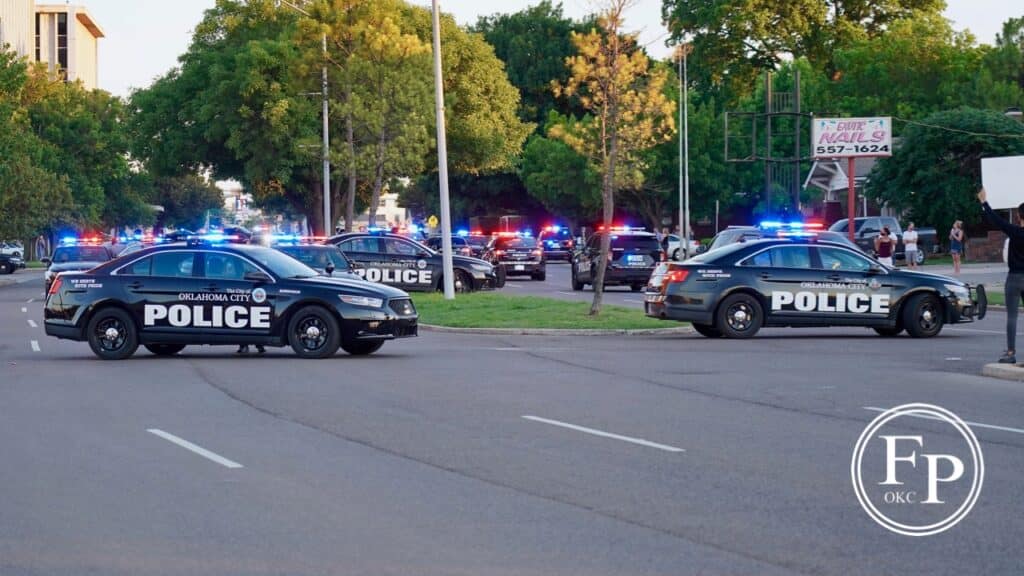Last Updated on January 4, 2023, 12:12 AM | Published: January 3, 2023
OKLAHOMA CITY — The City Council for Oklahoma City approved the police negotiated agreement for the current fiscal year 2022-2023 Tuesday, raising pay for current sworn officers as well as a dramatic increase for recruit pay.
Members of the police union, representing the City of Oklahoma City’s officers, voted to approve the agreement December 26, 2022.
All council members who were present voted for the agreement. Councilors Nice, Hamon, and Cooper were not present on the horseshoe at the time of the vote.
The agreement will be retroactive to the beginning of this fiscal year that began July 1, 2022.
Mayor David Holt said the police raises and raises in other negotiated agreements with city employees “represent the largest raises by percentage in modern city history.”
Not only will current officers receive an increase in pay but recruit pay during their academy training will increase a little over 24%.
Here are the pay specifics in the police contract approved Tuesday:
- An 8.0% pay plan adjustment for all ranks except Police Recruit, effective July 1, 2022.
- Adds a one-time 2% stipend across all ranks except for Police Recruits.
- A 24.6% pay plan adjustment for the Police Recruit rank, effective July 1, 2022.
- A change in defining the longevity base as 1% of $25.63, and adding language that the longevity base will be adjusted annually to the percentage increase in pay rates.
Seeking competitive pay
The City of Oklahoma City has been working harder in the past several years to recruit qualified people to work for the city in most areas, not just the police department.
However, police personnell recruting has been of considerable concern with over 100 sworn officer positions approved to fill but still open.
In his comments, Mayor Holt said that “our recruit pay now is certainly competative with any other department in the state.”
Police recruits must spend a full-time effort during their time in the academy which is long enough to prohibit much of any other kind of employment during the process of training up to being sworn in as an Oklahoma City Police Officer.
Police union leader responds
Mark Nelson is the president of the Fraternal Order of Police, Lodge No. 123 (OKCFOP) that represents the Oklahoma City Police officers in collective bargaining,
Free Press contacted him by phone soon after the vote and talked with him about the need for more officers.
He said that the need for more pay is to draw more qualified recruits into the ranks since the department is behind over 100 officers on their recruiting.
He said that the city counts those who are still recruits as positions filled since they are getting a paycheck. But, Nelson believes that recruits still in training don’t pull up the slack in the department until they are sworn in and on their own.
“Until they’re out of the academy, and also their FTO training and their probation, they don’t really count because they’re not functioning as a solo officer. And, those numbers always dwindle,” said Nelson. “So, I would say 100 is quite conservative. It’s probably closer to 150. If you don’t count who’s in the academy.”

The issue of just how many officers are needed can become — and has been — a contentious one between the police union and those who believe more officers are not the answer to the problems with mental health and homelessness that dog every city in the U.S.
But, Nelson explained the union’s hard push for more officers this way:
“It’s an officer safety issue. It’s a public safety issue. It’s a quality of work issue,” said Nelson. “And, that’s no sleight on the officer. But, if they’re bouncing, call to call to call just trying to answer people who are calling 911, it certainly limits the ability to focus on the needs of each individual caller as it is for a patrol officer, and then those same effects carry over to investigations.”
Nelson pointed out that patrol is not the only aspect of the department’s work that is suffering from staffing issues.
Investigations, made up of dectives and forensic specialists, have some of the most experienced officers in the department and thus, also have some of the largest numbers of retirements each year because of their years of service.
And, if there is not a big enough pool of officers to pull from who are coming up through the ranks, then investigations and the ability of the department to solve crimes is harmed, said Nelson.
Founder, publisher, and editor of Oklahoma City Free Press. Brett continues to contribute reports and photography to this site as he runs the business.










